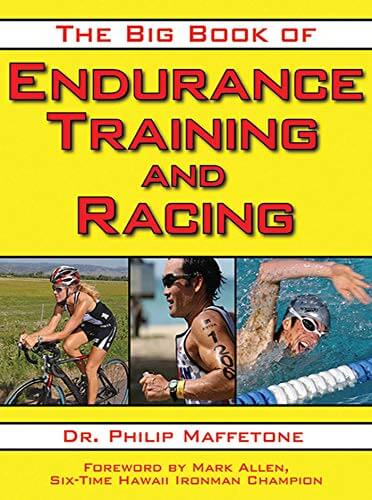
Are you a triathlete, runner, cyclist, swimmer, cross-country skier? Learn how to stay healthy, achieve optimal athletic potential, and be injury-free.
Dr. Philip Maffetone’s approach to endurance offers a truly “individualized” outlook and unique system that emphasizes building a strong aerobic base for increased fat burning, weight loss, sustained energy, and a healthy immune system. Good nutrition and stress reduction are also key to this common sense, big-picture approach.
In addition, Dr. Maffetone dispels many of the commonly held myths that linger in participatory sports-and which adversely impact performance-and explains the “truths” about endurance, such as:
- The need to train slower to race faster will enable your aerobic system to improve endurance
- Why expensive running shoes can actually cause foot and leg injuries
- The fact that refined carbohydrates actually reduce endurance energy and disrupt hormone balance
- And more.
If you are looking to increase your endurance and maximize your athletic potential, The Big Book of Endurance Training and Racing is your one-stop guide to training and racing effectively.
Dr. Philip Maffetone: Heart Rate Training, Nutrition and Recovery
Floris Gierman interviews Dr. Philip Maffetone on the fundamentals of his approach to training, nutrition and recovery.
Dr. Philip Maffetone | Floris Gierman on YouTube.
The Big Book of Endurance Training and Racing Quotes
“The Big Book of Endurance Training and Racing is for triathletes, runners, cyclists, swimmers, cross-country skiers, and other athletes seeking greater endurance. You will learn about the many important tools that help you achieve optimal athletic potential – and keep you healthy and injury-free for many productive years.”
“The Big Book of Endurance Training and Racing will help you individualize your own program. Every athlete has unique needs, and no single program will work for everyone. Most importantly, your primary concern should never be short-term; instead, your focus should always be long-term. By doing so improvements in performance should be consistent for years to come, despite your age or gender.”